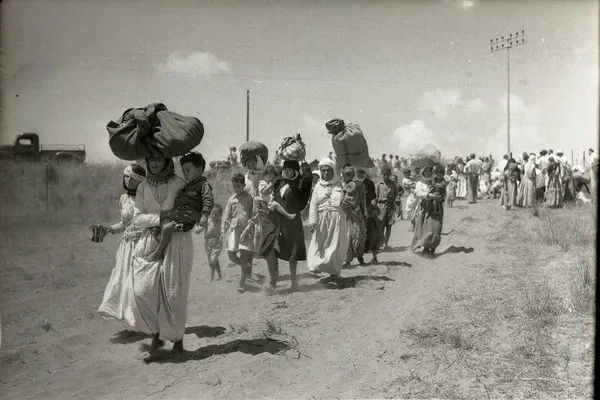 |
| Tantura Photo: Courtesy of Sundance Institute |
With Sundance Film Festival open for virtual business across the globe despite having to cancel the Utah element of the edition due to the ongoing pandemic, we're taking a look at a few of the films you can catch in the next week. Although festival director Tabitha Jackson noted, during an opening press conference, her disappointment that the festival had had to move online, she added: “We’re here on day one of the festival with all the work in front of us and a community around us, and you know what? It feels good.” So, here's some of the films to look out for between now and January 30 - they are, inevitably, weighted towards documentar as these are the films it was easier to access ahead of the festival but we'll also be bringing you plenty of fiction coverage going forward.
Tantura, World Documentary Competition
This meticulous documentary from Alon Schwarz is one of several at the festival that draw on archive footage - something I suspect we're going to see a lot of, in general, because of Covid making it harder to shoot things out in the world over the past 18 months. Tantura is just one of the hundreds of Palestinian villages that was depopulated when, The War of Independence (or Al Nakba/the Catastrophe as the Palestinians term it) was sparked as the state of Israel was established in 1948. Schwarz re-examines oral history by soldiers and former villagers of Tantura to question what happened in the village at the time and subsequent denial of war crime allegations which, the film argues, perpetuates today as history is written in a way that is dictated rather than borne out of genuine experience. A film that is so dense that it demands attention and which is certain to attract controversy but rewards that with plenty of food for thought.
Three Minutes: A Lengthening, Spotlight
Bianca Stigter also draws on archive in an exacting fashion for her essay documentary, which screened in Venice and Toronto last year. The three minutes of the title refers to a piece of home movie, shot in the Polish town of Nasielsk in 1938. In it, we see the smiling faces of children, eager to be in the frame, older people curious and, in one shot, a stream of worshippers leaving a synagogue. All but 100 of the town's 3000 Jewish residents would go on to be murdered in the Holocaust and Stigter's film aims to divine all it can about those on the camera and what would happen to them. Fascinating not just in terms of what it tells us about the place and time but in the way it considers our relationship to archive films like this and what we can gain from them.
Every Day in Kaimuki, Next
Director Alika Tengan definitely deserves plaudits for embracing the Covid world, with his first feature - something so many filmmakers continue to pretend does not exist. There's shades of modern-day mumblecore about this tale of O'ahu resident Naz Kawakami, who co-wrote the script with Tengan), as he plans for a move to New York with his girlfriend - something his friends don't think he'll actually do. The slowburn, low-key nature of this won't be for everyone but there's a warm ebb and flow to Tengan's snapshot of a life in flux, bolstered by a sense of emotional truth.
Nothing Compares, World Documentary Competition
Jeremy Mathews writes: It’s hard to think of an artist with more fiery passion and obstinate stubbornness than Sinead O’Connor, and Nothing Compares provides an engaging account of the Irish singer’s meteoric rise and fall. After touching on its subject’s childhood trauma, the documentary charts O’Connor’s life from 1987 to 1992, as she recorded and released her first three albums while courting controversy. Director Kathryn Ferguson tells the visual story entirely with archival footage and reenactments. We hear recent interviews, but don’t see any new footage of talking heads. We don’t even see modern-day Sinead until a live performance concludes the film. While the movie may be guilty of smoothing out some of its subject’s rough edges, it’s hard to claim O’Connor wasn’t ahead of the curve as an outspoken female artist. It really strikes some emotional nerves as we witness a young, stubborn woman win the public’s love, then face its hatred.
All That Breathes, World Documentary Competition
Through a tale of two brothers and their life of devotion to helping the red kites that become injured due to the pollution in Delhi, Shaunak Sen weaves a picture of the fabric of their city. He blends nature photography with fly-on-the-wall observations of the brothers, their philosophical observations of the changing face of Delhi and growing unrest there. The result is a complex portrait of the intersection between humans and animals, politics and social wellbeing that celebrates the brothers' work at the same time as lamenting the more destructive impulses driving the city more generally. Read what Shaunak Sen told us about his approach to the film.





















